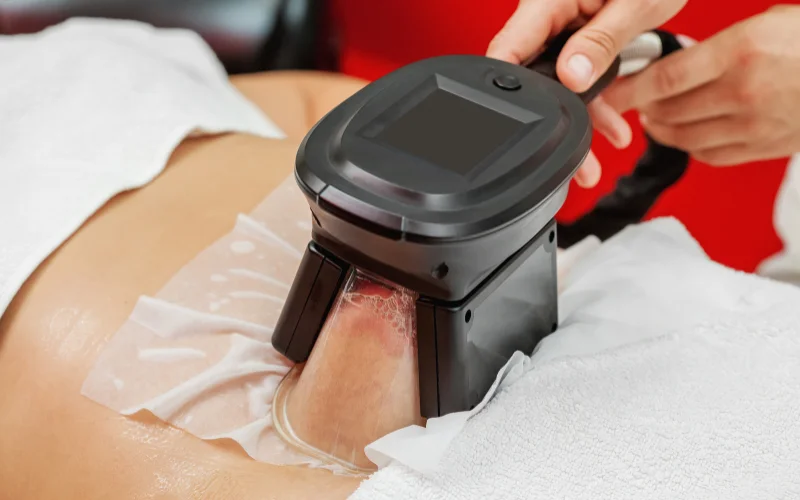Scopophobia, also known as scoptophobia or ophthalmophobia, is a specific phobia characterized by an intense fear of being stared at. This fear can be overwhelming and debilitating, affecting a person’s daily life and social interactions. People with scopophobia often feel extreme discomfort and anxiety in situations where they believe they are being watched or scrutinized.
This condition goes beyond normal self-consciousness and can lead to significant distress and avoidance behaviors. In this article, we will delve into the causes, symptoms, and treatments of scopophobia, providing valuable insights for those who may be experiencing this condition or know someone who is.
Keyword Takeaway
- Scopophobia is the intense fear of being stared at.
- It can be caused by genetic predisposition, traumatic experiences, cultural and social factors, and underlying mental health issues.
- Symptoms include rapid heartbeat, sweating, trembling, shortness of breath, nausea, intense fear, avoidance, and difficulty concentrating.
- Treatment options include Cognitive-Behavioral Therapy (CBT), medication, mindfulness and relaxation techniques, and support groups.
- Coping strategies involve educating oneself, seeking professional help, building a support network, and practicing self-care.
Causes of Scopophobia

The exact cause of scopophobia is not well understood, but several factors may contribute to its development. These factors can range from genetic predispositions to traumatic experiences and underlying mental health challenges.
| Cause | Description |
|---|---|
| Genetic Predisposition | Family history of anxiety disorders |
| Traumatic Experiences | Past incidents of ridicule or humiliation |
| Cultural and Social Factors | Societal pressure and fear of judgment |
| Underlying Mental Health Issues | Associated with social anxiety disorder and other types of mental illness |
Symptoms of Scopophobia

Individuals with scopophobia may exhibit a range of symptoms, which can be both physical and psychological. These symptoms can vary in intensity and may include:
Physical Symptoms:
- Rapid heartbeat
- Sweating
- Trembling
- Shortness of breath
- Nausea
Psychological Symptoms:
- Intense fear or panic
- Avoidance of social situations
- Feelings of embarrassment or shame
- Difficulty concentrating
- Irritability
Psychological symptoms of scopophobia can be particularly distressing, as they often lead to a vicious cycle of anxiety and avoidance. The fear of being stared at can cause individuals to withdraw from social interactions, leading to isolation and further exacerbating feelings of loneliness and depression. This avoidance behavior can significantly impact one’s quality of life, making it challenging to maintain relationships, perform well at work or school, and engage in everyday activities.
Diagnosing Scopophobia

Diagnosing scopophobia typically involves a thorough evaluation by a mental health professional. This evaluation process may include several steps to ensure an accurate diagnosis:
- Clinical Interviews: The mental health professional will discuss the patient’s history, symptoms, and experiences to understand the severity and context of the phobia.
- Questionnaires and Assessments: Standardized tools and questionnaires may be used to measure the severity of the phobia and its impact on the individual’s life.
- Rule Out Other Conditions: It is essential to ensure that symptoms are not due to other mental health challenges or physical conditions. This may involve additional tests or evaluations to exclude other possible causes.
Treatment Options for Scopophobia

Several treatment options are available for managing scopophobia, and the best approach may vary depending on the individual’s specific needs:
Cognitive-Behavioral Therapy (CBT)
CBT is a highly effective treatment for scopophobia. It involves identifying and challenging negative thought patterns and behaviors. Techniques such as exposure therapy, where the individual gradually faces their fear in a controlled environment, can be particularly beneficial. Through CBT, individuals learn coping strategies and techniques to manage their anxiety and reduce their fear of being stared at.
Medication
In some cases, medication may be prescribed to help manage symptoms. This can include:
- Antidepressants: These medications can help reduce anxiety and improve mood, making it easier for individuals to cope with their fear.
- Beta-Blockers: These medications can help control physical symptoms such as rapid heartbeat and trembling, which are common in scopophobia.
- Anti-Anxiety Medications: These medications can provide short-term relief of severe anxiety, helping individuals manage acute episodes of fear.
Mindfulness and Relaxation Techniques
Practicing mindfulness, meditation, and relaxation exercises can significantly help individuals manage anxiety and reduce the fear associated with being stared at. Furthermore, these techniques promote a sense of calm and, additionally, help individuals stay grounded in the present moment. Consequently, incorporating these practices into daily routines can lead to a more balanced and serene state of mind. Ultimately, these methods contribute to better overall mental health and resilience.
Support Groups
Joining a support group can provide a sense of community and understanding. Furthermore, sharing experiences with others who have similar fears can be both comforting and empowering. Additionally, support groups offer a safe space to discuss challenges and, moreover, learn from others’ coping strategies.
Coping Strategies for Scopophobia

Living with scopophobia can be challenging, but there are strategies that can help individuals cope and improve their quality of life:
- Educate Yourself: Understanding the condition can reduce fear and anxiety. Learning about scopophobia and its causes can provide a sense of control and empowerment.
- Seek Professional Help: Early intervention can prevent the phobia from worsening. Professional guidance can offer tailored treatment plans and support.
- Build a Support Network: Surround yourself with understanding and supportive friends and family. A strong support system can provide encouragement and help during difficult times.
- Practice Self-Care: Prioritize activities that promote mental and physical well-being. Engaging in hobbies, exercise, and relaxation techniques can improve overall health and reduce anxiety.
Moving Forward with Confidence

Living with scopophobia can be a challenging journey, but it is important to remember that you are not alone. Many individuals have successfully managed their fears and gone on to lead fulfilling lives. By seeking professional help, utilizing coping strategies, and building a strong support network, you can take significant steps toward overcoming your fear of being stared at. The key is to remain patient and persistent, as progress may be gradual but is certainly achievable with dedication and the right resources.
As you move forward, it is essential to celebrate small victories and acknowledge the progress you make, no matter how minor it may seem. Moreover, each step you take towards managing scopophobia is a testament to your strength and resilience. Therefore, remember that it is possible to reclaim control over your life and reduce the impact of this phobia. With the right mindset and support, you can consequently move forward with confidence and ultimately embrace a life free from the constraints of scopophobia.
Conclusion
Scopophobia is a serious condition that can significantly impact a person’s life. However, with the right treatment and support, individuals can manage their fear and lead fulfilling lives. If you or someone you know is struggling with scopophobia, it is important to seek professional help and explore the available treatment options. Understanding and addressing this phobia can lead to a better quality of life and improved mental health.
FAQs
1. What is the difference between scopophobia and social anxiety disorder?
Scopophobia specifically involves a fear of being stared at, while social anxiety disorder encompasses a broader range of social fears, including fear of social interactions and being judged. Individuals with social anxiety disorder may experience anxiety in various social situations, whereas those with scopophobia primarily fear being watched.
2. Can scopophobia be cured?
While there is no definitive cure for scopophobia, many individuals find relief through therapy, medication, and self-help strategies. With the right treatment, symptoms can be significantly reduced, allowing individuals to manage their fear effectively and improve their quality of life.
3. How common is scopophobia?
Scopophobia is considered a rare phobia, but it can occur in individuals with other anxiety disorders or mental health challenges. The exact prevalence is not well-documented, but it is recognized as a significant issue for those affected.







